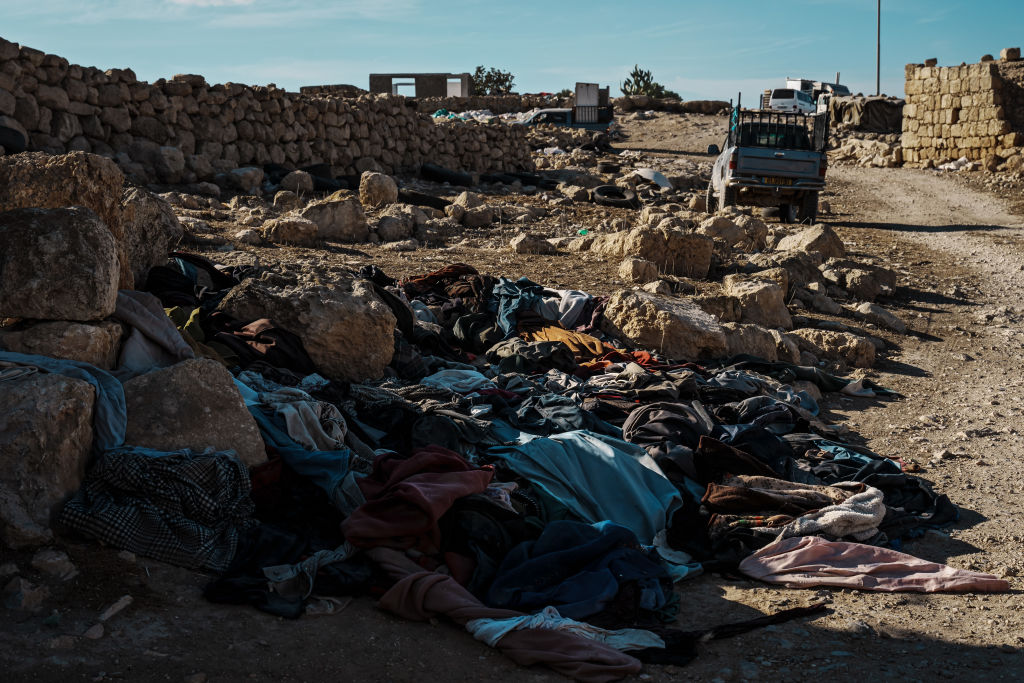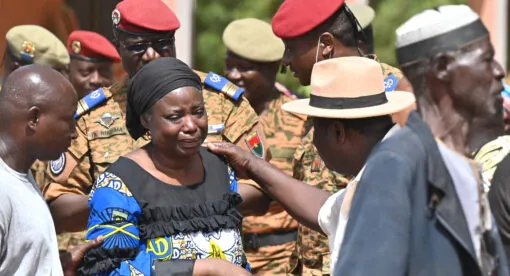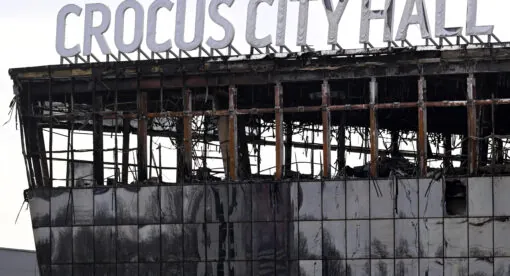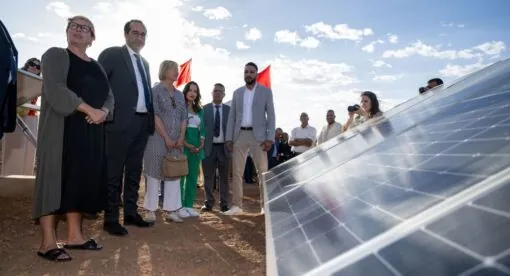With international attention focused on the Israeli response to Hamas’ Oct. 7 terrorist attacks across southern Israel, settlers in the West Bank – working in cooperation with members of the Israeli government and military – have escalated the use of lethal force against Palestinian civilians. This alarming spike in violence undermines key U.S. policies in Israel and the Palestinian territories and is deserving of urgent attention as policymakers in Washington seek to avoid a wider regional war and avert a humanitarian catastrophe in Gaza. As policymakers in the United States and Israel begin to think about what comes after Israel’s ground campaign in Gaza, escalating settler violence in the West Bank risks sparking a much wider crisis that would compound the already enormous challenges standing in the way of a lasting settlement to the conflict.
Endemic Violence Spikes to New Levels
Violence against Palestinian civilians in the West Bank began to increase within hours of the attacks in southern Israel. Yesh Din, an Israeli NGO that monitors human rights abuses in the West Bank, reported at least four incidents of settler violence on Oct. 7, causing at least three injuries and extensive property damage. Daily attacks continued, and on Oct. 11, at least three Palestinians reportedly were killed in the town of Qusrah, south of Nablus, by settlers armed with rifles; a fourth was killed either by settlers or IDF soldiers arriving later to the scene. The following day, their funeral procession was attacked by settlers who killed another two civilians. Soldiers have overwhelmingly failed to stop the attacks and in some cases are reported to have actively participated in the worst abuses: On Oct. 12, settlers and uniformed IDF soldiers allegedly handcuffed three Palestinian civilians in Wadi as-Seeq, stripped them to their underwear, and inflicted physical and sexual abuse on them that ultimately required them to be treated at a hospital. The army has since dismissed the commanding officer and opened an investigation into the incident.
In addition to the IDF’s failure to intervene effectively to protect Palestinians during attacks, high-level political leadership in Israel has appeared to endorse the settlers’ right to use lethal force against Palestinians. Israeli Security Minister Itamar Ben-Gvir announced in the immediate aftermath of the attack that 10,000 assault rifles would be distributed to Israeli civilians, specifying West Bank settlers would be among the intended recipients. Other government officials charged with administering the West Bank have instead chosen to remain silent. Finance Minister Bezalel Smotrich, who also has sweeping authority over settlements in the West Bank, has not commented on the latest round of violence but previously called for the Palestinian town of Huwara to be “wiped out” following a round of deadly settler violence in the village and criticized the Israeli government for closing a West Bank road to prevent clashes with settlers during a Palestinian funeral procession.
Some members of Israel’s security establishment have also identified the recent escalation of violence by armed settler groups as a potential security crisis. A report by Israel’s Shin Bet security service warned that the incidents might spark a broader cycle of violence in the West Bank that would be challenging to control, and the head of the Shin Bet reportedly briefed Israel’s war cabinet on the issue on Oct. 28. Israel’s military police arrested an off-duty soldier the following day after he shot a Palestinian civilian harvesting olives near Nablus. Israeli Defense Minister Yoav Gallant approved four months of detention without trial for the prominent far-right settler activist Ariel Danino the same day, citing a “reasonable foundation to assume that state security/public security requires” his detention. Members of Israel’s security establishment, focused on an ongoing ground invasion into Gaza and nervous about the possibility of a new northern front to the war, are interested in avoiding a wider conflagration in the West Bank, even if members of Israel’s far-right government have offered a more approving attitude toward settler violence and pushed back against the detention of Danino and other efforts to rein in the escalating violence.
These attacks have repercussions that extend beyond the death and injury tolls. Theft, property damage, and harassment – and the failure of the Israeli government to prosecute abuses – force Palestinians to leave their homes. B’tselem, an Israeli NGO that monitors human rights abuses in the West Bank, reported Oct. 19 that at least 472 Palestinian civilians have been displaced in the West Bank since the start of the current conflict, fearing escalating violence from the settlers and with no credible law enforcement to protect them (the Associated Press has corroborated the displacement of Palestinians in the West Bank due to settler violence). Although far fewer than the million-plus displaced in Gaza or the 200,000 Israeli civilians displaced from northern Israel, the number belies a long-running effort by armed settlers to displace Palestinian civilians off their land in order to expand the settlers’ area of control and preclude the possibility of a two-state solution.
Settler Violence and State Policy
Civilians in kibbutzes and towns across southern Israel waited upwards of eight hours – and in some cases nearly a full day – for rescue following Hamas’ surprise attack on the morning of Oct. 7. The long delay highlighted the vulnerabilities in Israel’s current security posture, which requires it to not only defend against hostile state and non-state armed groups in Gaza, Lebanon, and Syria but also to protect an ever-increasing sprawl of settlements across the West Bank. Military bases in southern Israel were operating below full strength in the leadup to the attack, with many soldiers redeployed to the West Bank. As one anonymous IDF official told a reporter following the attack, “Soldiers that were supposed to be outside Gaza were in the West Bank protecting settlements and chasing rock-throwing kids in Jenin.”
As Israel begins its ground campaign in Gaza and reinforces its northern border in light of escalating violence with Hezbollah and other Iran-backed militant groups, its West Bank security apparatus is likely to be stretched thin. Ben-Gvir and others who have backed more aggressively arming settlers see it as an opportunity to make settlements less vulnerable to attack even as the state’s formal security services look to turn their focus to Gaza. These heavily armed settlers may be a deterrent for potential Palestinian attacks against Israel’s sprawling archipelago of settlements across the West Bank, but they also pose a grave threat to Palestinians themselves. This is a result of the long-running effort by senior members of Israel’s current government to cultivate a culture of impunity among settlers in the West Bank, permitting them to engage in acts of violence against Palestinian civilians and failing to prosecute all but the most egregious crimes.
When hundreds of settlers descended on the Palestinian town of Huwara on Feb. 26, in one of the most dramatic incidents of settler violence in years, IDF soldiers detained only eight participants in the lethal attack and released all eight within 24 hours, keeping three of them under house arrest pending further investigation. Smotrich has made approving comments toward settlers who commit violence against Palestinians, referring to them as “brothers,” and has refused to refer to violent rampages by settlers through Palestinian towns as acts of terrorism. Smotrich’s permissive comments toward settler violence carry particular weight due to his extensive authority over governance issues in the West Bank, but they are part of a broader culture of impunity for settler violence that has been cultivated by years of failure by Israel’s military and law enforcement to prevent acts of violence or prosecute perpetrators.
Options for Washington
Even as policymakers in Washington seek to avert a humanitarian catastrophe in Gaza or Hezbollah’s entry into the war on Israel’s north border, they should craft a policy for responding to this urgent crisis in the West Bank. President Joe Biden has already commented on the crisis directly, saying that the violence by “extremist settlers” must stop and that the perpetrators “have to be held accountable,” comments National Security Adviser Jake Sullivan echoed in a media interview. These attacks undermine any remaining prospect of a two-state solution and risk sparking a broader regional conflict that the United States is working urgently to prevent. To the extent that these attacks implicate IDF units or equipment given to the IDF by the United States, they also risk placing some forms of U.S. security assistance to Israel in legal jeopardy due to obligations under U.S. law to prevent direct or indirect security assistance to units engaged in gross violations of human rights.
In the near term, policymakers in Washington should work urgently to prevent violence in the West Bank from spiraling out of control. Armed settlers engaging in indiscriminate violence against Palestinian civilians pose an existential threat to the West Bank’s already-fragile security situation. Policymakers should closely monitor allegations of violence by settlers and press the Israeli government for meaningful accountability for perpetrators. Sexual assault, torture, and murder are crimes, not administrative errors, and dismissing a commanding officer should not be treated as a sufficient response when crimes are well documented and perpetrators are witnessed by IDF soldiers. Policymakers should closely monitor for impartiality the court cases of the few Israeli settlers who are arrested by the IDF, with the understanding that releasing known perpetrators of serious violence without trial will beget future abuse. IDF members’ apparent cooperation in certain crimes also places U.S. security assistance to Israel in potential legal jeopardy, a reality that should be communicated to Israeli government officials who oversee the West Bank’s security apparatus. Policymakers have reportedly already conveyed concerns about the handing out of U.S.-supplied rifles by Ben-Gvir, which has led to a modest shift in policy in how the weapons are distributed.
In the long run, however, U.S. policy on this issue must reckon with the fundamental misalignment between U.S. and Israeli goals in the West Bank. Although President Benjamin Netanyahu has reportedly reassured foreign officials that he has no immediate plans to annex the West Bank, he has also said that Israel “needs to crush” Palestinians’ ambitions for an independent state. The far-right officials he has appointed to senior positions in the state’s security apparatus and civilian government have referred to a two-state solution as a “fantasy” and worked to make it impossible through a rapid expansion of new settlements and the legalization of existing ones. In that context, settler violence is a sideshow at worst for the current Israeli government, and actively beneficial at best, insofar as it displaces Palestinians off their land and enables the expansion of new and existing settlements. Smotrich’s approving comments following the Huwara rampage were reflective of his commitment to “victory by settlement,” which necessarily involves the displacement of existing Palestinian villages at the hands either of settlers or the IDF itself. Consistent U.S. pressure may reduce the abuse of Palestinian civilians, but it cannot solve the underlying causes as long as the Israeli government’s end goal is the de facto annexation of the entire West Bank.
Calvin Wilder is a Senior Analyst for the Special Initiatives portfolio at the New Lines Institute where he leads the Nonstate Actor Accountability project. Prior to joining the institute, Calvin was a Research Assistant at the Washington Institute for Near East Policy’s Program on Arab Politics, where his research focused on economic and humanitarian issues in territories held by non-state actors in Syria. He previously worked as a Research Assistant on the Chicago Project for Security and Threats’ Arabic Propaganda Analysis Team, translating and analyzing Arabic-language propaganda produced by ISIS, al Qaeda, and other extremist groups. He was a Boren Scholar in Amman, Jordan, from 2019-2020, working as a research and translation intern at Syria Direct. He tweets at @CalvinWilder
The views expressed in this article are those of the author and not an official policy or position of the New Lines Institute.







